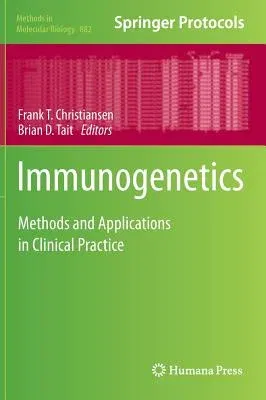The HLA molecules are important regulators of the immune response
through mediating antigen presentation and interaction between key
immune mediating cells. They are also the major histocompatibility
barriers to transplantation, which is the clinical paradigm of the self
versus non self concept. It is now recognized that this diverse range of
gene systems involved in the control of the immune response have been
shown to be important in many aspects of clinical practice. As a result
many new molecular and cellular methods have been developed for
identifying these genes and their polymorphisms, and immunogenetic
laboratories specializing in these methods have developed to support
transplantation and other clinical programs. Immunogenetics: Methods
and Applications in Clinical Practice focuses on methods for human
clinical practice. The emphasis rests on those assays which are of
established or potential clinical utility and are likely to be included
in the repertoire of tests provided by a routine diagnostic and service
laboratory. This volume also contains several review chapters of the MHC
complex, the KIR complex, the human immunoglobulin allotypes, as well as
reviews of the methods for the detection of alloreactive NK cells and
the detection of HLA antibodies by solid phase assays. Written in the
successful Methods in Molecular Biology(TM) series format, chapters
include introductions to their respective topics, lists of the necessary
materials and reagents, step-by-step, readily reproducible protocols,
and notes on troubleshooting and avoiding known pitfalls.
Authoritative and easily accessible, Immunogenetics: Methods and
Applications in Clinical Practice seeks to serve both the
immunogenetics community and the wider scientific community with a
collection of detailed information and helpful tips attained by many
years of experience in the field.

